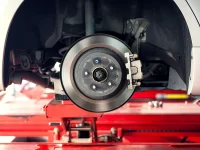Understanding Modern Car Engines

Scrap Car Network recently published a quiz to see how well people know the workings of their car’s engine. The ethical recycling specialists fear that modern engines are making it harder for us to do our own repairs.
Rewind twenty or thirty years, and the situation was very different. Car owners were encouraged to tinker with their engines. With just a set of necessary tools and the right type of Haynes manual, owners did not have to take their vehicles into the garage for essential repairs.
Jump back to the present day, and the situation is quite the opposite, despite the inner workings of the combustion engine being virtually the same.
Old Principles, New Technology
Car engines are now packed with software and new technology. Some even now contain artificial intelligence features. The big difference between classic and modern engines is that new versions are now full of sensors and electronics rather than mechanical parts which wear out quicker.
Specifically, new cars can monitor multiple parameters both inside and outside the vehicle. These include things like engine temperature, oxygen levels and throttle position.
Some cars even feature artificial intelligence (AI) which can monitor and predict when a problem might occur. Looking into the future, AI may also play a role in car manufacturing as robots on the production line are increasingly replacing humans.
The Days of Fixing your Own Car Appear to be Over
Because of these changes, fewer and fewer car owners are now able to repair their engines themselves. Instead, they have to rely on their local mechanic who has both the up to date knowledge and equipment to get the job completed correctly.
Manufacturers now actively discourage drivers from tampering under the bonnet by covering engines with plastic covers. The main reason for this, of course, is so the driver will not make any changes to the car engine which could invalidate the vehicle’s warranty.
Instead, modern cars need to be dealt with by the most highly trained professionals who know about the sophisticated electronics within them. These professionals are also equipped with all the equipment necessary to diagnose and fix problems with cars.
Our Final Word on Classic vs Modern Engines
It can be argued that although we’re no longer fixing our cars ourselves, the chance of our vehicles developing problems are now much lower. When problems do occur, we are often able to fix the issue at the roadside ourselves. This is thanks to the diagnostic features and warning lights that our modern cars feature as standard.
It is interesting to consider what the future may hold in terms of current advances in technology. Indeed, self-driving vehicles are in the process of being trialled. This begs the question of whether we will be driving our own cars in another thirty years, never mind fixing them ourselves.







